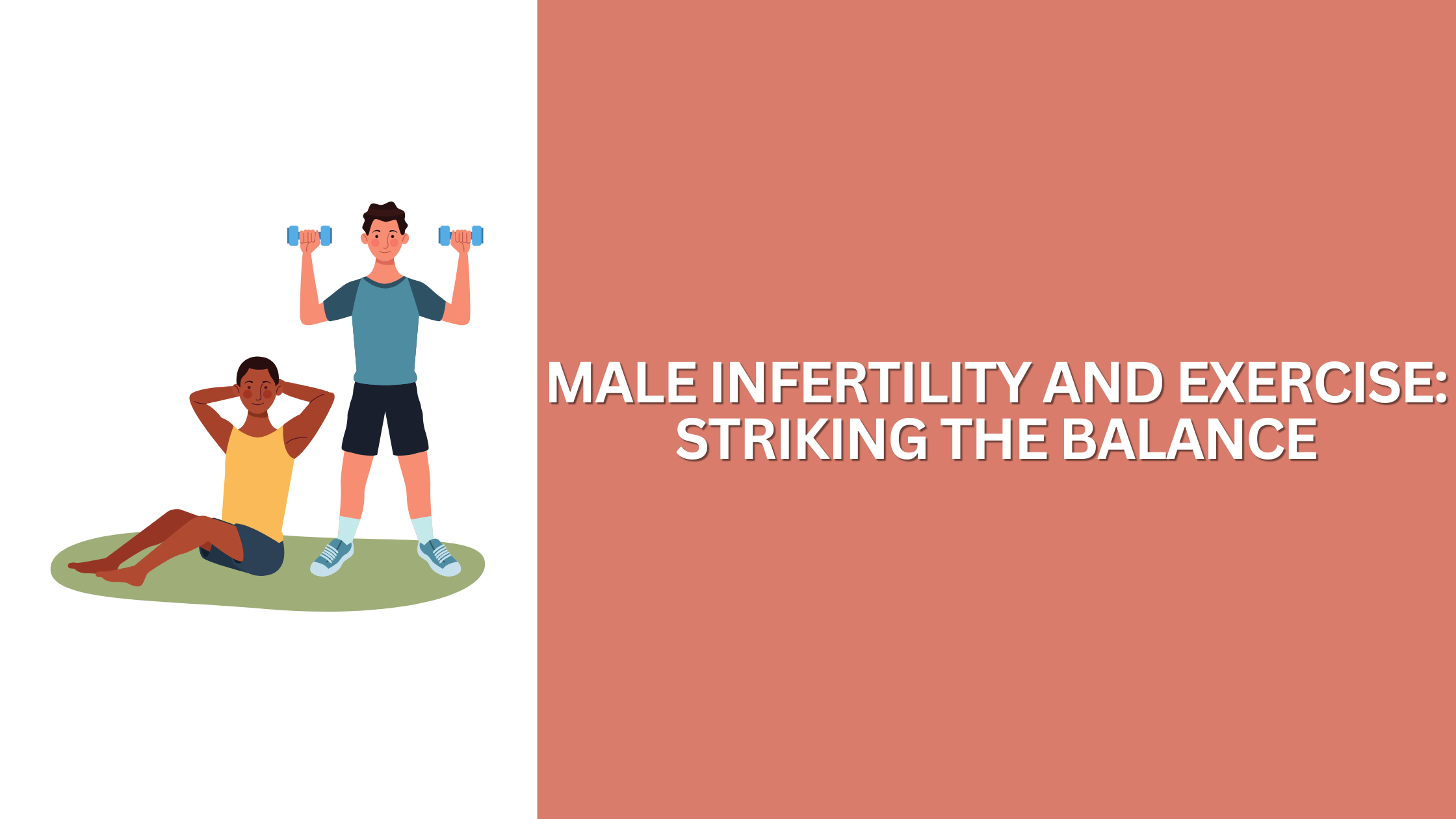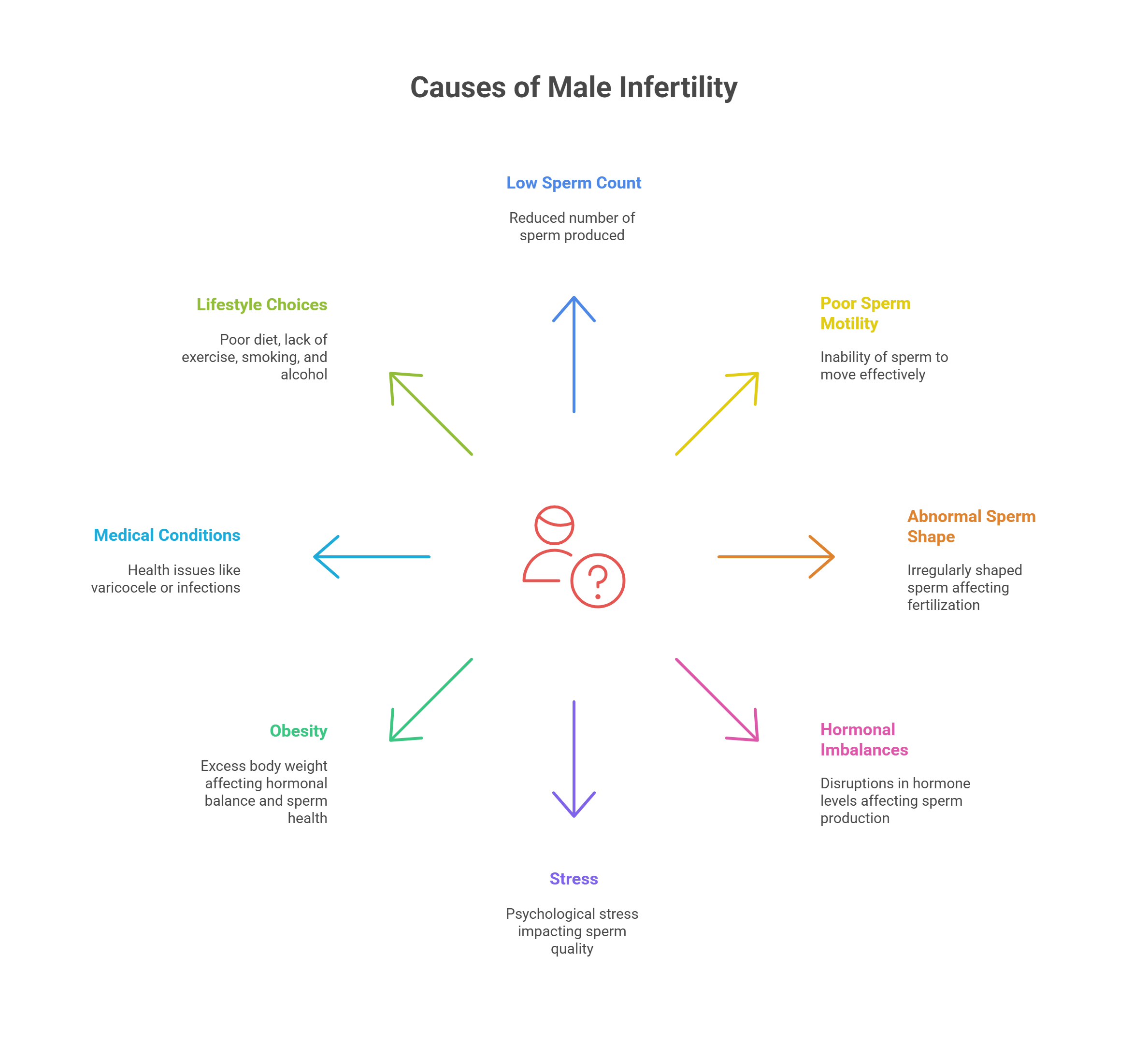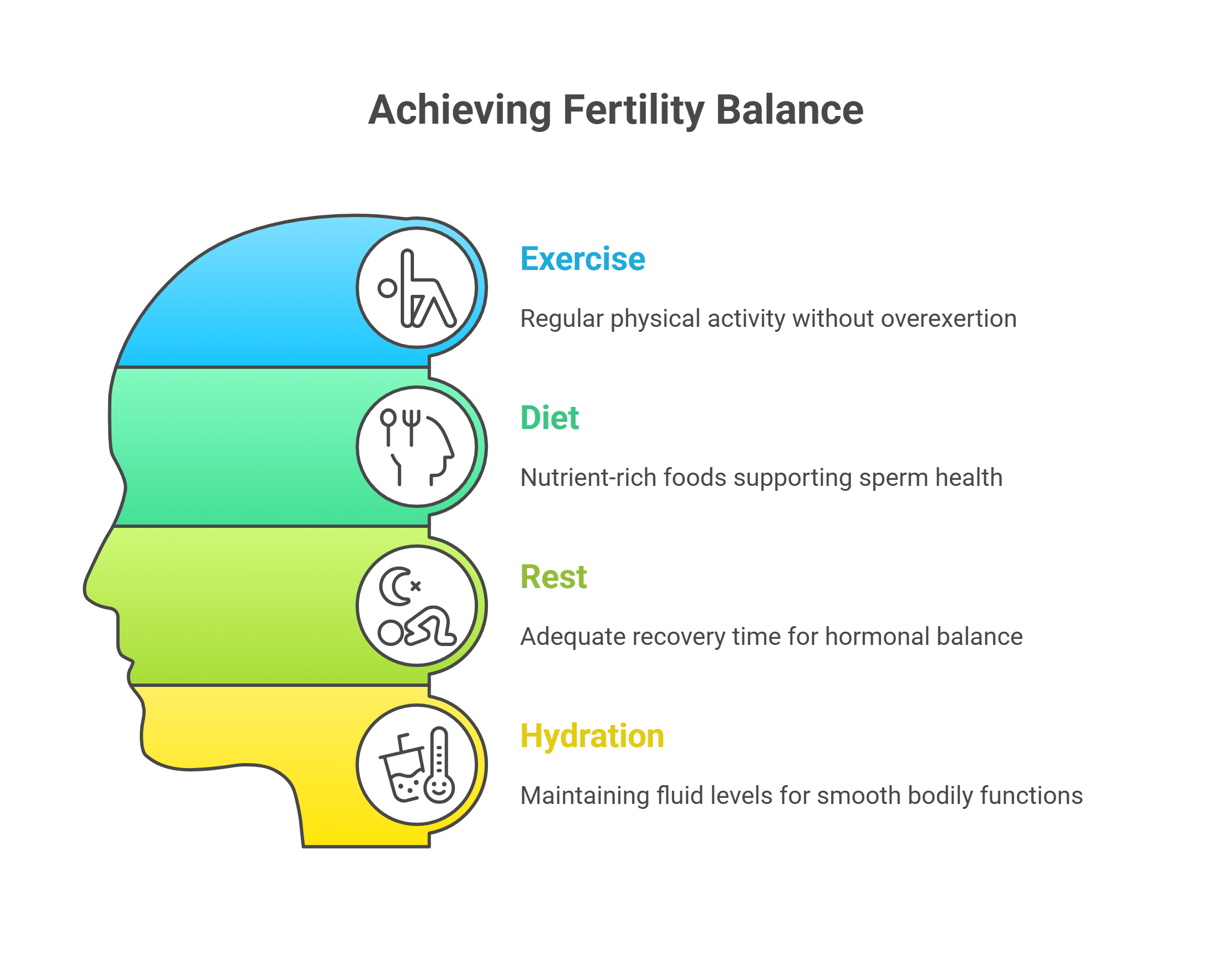
If you are a couple in your late 30s or early 40s and have been trying to get pregnant without any luck, then the conversation around infertility must have come up. Generally, many people think that infertility is a woman’s problem, but male infertility is a reason for nearly half of the infertility cases.
The reason for male infertility is not always medical, as your lifestyle choices also play a role in it. One of the lifestyle factors that plays an important role in sperm health and hormonal balance is exercise. Though exercise is important, both too little and too much exercise can impact your fertility.
Exercising the right way can help boost circulation, support testosterone levels, and help maintain a healthy weight. Let’s look at how exercise affects male fertility and how you can find a healthy balance that supports both fitness and reproductive health.
What Causes Male Infertility
There are several factors that can lead to infertility in males. Some of these are low sperm count, poor sperm motility, or abnormal sperm shape. Apart from these, hormonal imbalances, stress, and obesity can make things worse. Some medical conditions, such as varicocele, which is enlarged veins in the scrotum, or infections, also contribute to male infertility.
Your lifestyle choices also have a direct impact on fertility. If your diet is poor in nutrition, you are doing little or no physical activity, and are smoking and drinking alcohol excessively, then it can harm the sperm quality.

The Positive Role of Exercise on Male Fertility
Exercise, when done in moderation, can have a positive impact on reproductive health. Regular exercise boosts blood flow, supports heart health, and helps maintain optimal testosterone levels. When you remain active, you are able to maintain a healthy weight, reducing the risk of hormonal imbalance. Regular exercise also reduces oxidative stress that can damage sperm DNA. Lower oxidative stress means healthier sperm DNA and a better chance of conception.
Some of the best activities for improving fertility include brisk walking, swimming, yoga, cycling in moderation, and light resistance training. These exercises promote hormonal balance without putting excessive strain on the body. You should focus on keeping your body active without getting exhausted.
When Exercise Can Harm Fertility
While moderate exercise is good for reproductive health, overdoing it can have the opposite effect. Overtraining can lead to low testosterone and reduced sperm production. If you spend hours daily doing high-intensity workouts, you may experience fatigue, hormonal disruption, and even reduced libido.
Prolonged exercise can also increase heat and stress in the testicular area, leading to fertility challenges. Another important aspect to consider is the use of anabolic steroids or performance-enhancing substances. These may boost muscle mass in the short term, but can severely reduce or even stop sperm production. Recovery is possible once the use stops, but it may take several months or longer.
Balancing Fitness and Fertility
Your goal should be to find a healthy balance between physical fitness and fertility. You can plan to do a 30 to 45-minute workout 4 to 5 times a week. You need to keep your body active without overstraining it. Giving your body the time to rest and recover is equally important. Intense exercise without enough downtime does not allow the body to repair itself, leading to hormonal imbalances.
A balanced diet is equally important. Foods rich in antioxidants, vitamins, and minerals support sperm health. Eat plenty of fruits, vegetables, whole grains, nuts, and lean protein. Also, try to include omega-3 fatty acids from fish or flaxseeds in your diet to improve sperm function.
You also need to focus on getting quality sleep and keeping your body hydrated so that your body is able to function smoothly. Exercise is not a magical solution for infertility but a part of a comprehensive fertility approach.

Lifestyle Habits That Complement Exercise
Exercise is not a magical solution for infertility, but a part of a comprehensive fertility approach that includes lifestyle changes. Some of the lifestyle habits that can improve your chances of getting pregnant include:
1. Quitting smoking, limiting alcohol, and avoiding heat exposure to improve sperm health.
2. Keeping stress levels in check through relaxation techniques. Meditation, yoga, or spending time in nature can calm the nervous system and support fertility.
At London IVF Centre our fertility specialists can guide you on how to align your lifestyle choices with treatment goals.
When to Seek Help
Even after several months of making lifestyle changes and following a healthy routine is not helping, then it may be time to consult a fertility specialist. Doing so will save valuable time and provide clarity. A fertility specialist will provide you with comprehensive male fertility assessments, including semen analysis, hormonal evaluation, and personalized treatment plans.
Exercise has a powerful influence on male fertility, but the key lies in moderation. Staying active improves hormone balance, reduces stress, and supports sperm health. Overdoing it, however, can have the opposite effect.
If you continue to face challenges, book an appointment at London IVF Centre to identify the root cause and get personalized solutions.



